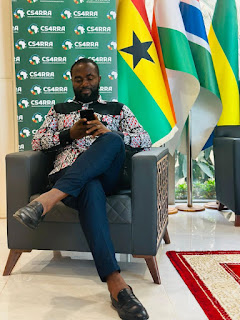BRIDGING CULTURES THROUGH COMMUNICATION
 Last Sunday, I had the wonderful opportunity to engage with a dynamic group of communication enthusiasts on the fascinating topic of intercultural communication. The discussion was both enlightening and thought-provoking, allowing us to explore the nuances of effective communication across cultures and the impact of cultural awareness on professional and personal interactions.
Last Sunday, I had the wonderful opportunity to engage with a dynamic group of communication enthusiasts on the fascinating topic of intercultural communication. The discussion was both enlightening and thought-provoking, allowing us to explore the nuances of effective communication across cultures and the impact of cultural awareness on professional and personal interactions.
During this engaging conversation, I reflected on my journey as a communicator, through diverse cultural landscapes. Having spent the majority of my career in the development sector, most recently within the West African and European space, I have had the privilege of working with colleagues, stakeholders, partners, and beneficiaries from vastly different backgrounds. Over the past decade, I have come to appreciate the richness of cultural diversity and the importance of fostering mutual understanding in all interactions.
One of the key lessons I have learned is that intercultural communication is more than just exchanging words. It is about building relationships, respecting differences, and adapting to new environments. Managing cultural shocks, adjusting to unfamiliar cuisines, embracing different social norms, and understanding varied perspectives on faith, music, and work ethics have been essential in strengthening my ability to connect with people from diverse backgrounds. Each interaction is an opportunity to learn, unlearn, and relearn.
Every day presents a learning curve that requires tact, diplomacy, and sensitivity. Effective communication across cultures goes beyond language proficiency. It involves recognising the subtle cues that define how people perceive and interpret messages. I have learned to be mindful of ambiguities, to steer clear of humour that touches on faith or politics, and to avoid idiomatic expressions and jargon that may not translate well across linguistic and cultural divides.
My experiences have taken me across Anglophone, Francophone, and Lusophone communities, where I have engaged with people from various faiths, races, and ethnic groups, including the Wolof, Mossi, Touareg, Hausa, Fulani, Fon, Yoruba, and Creole communities, among others. Each group brings a unique cultural perspective that influences how they communicate, engage, and build relationships. Understanding these nuances has enriched my work and deepened my appreciation for the power of communication in bridging divides.
I have also discovered that Intercultural communication is a continuous journey, one that requires openness, patience, and a genuine willingness to learn from others. As a communications professional, I am constantly inspired by the individuals I engage with daily. Their stories, experiences, and perspectives shape my approach to crafting speeches, writing op-eds, developing communication strategies, and designing initiatives that resonate with diverse audiences.
In a world that is becoming increasingly interconnected, the ability to communicate across cultures is more crucial than ever. It is a skill that fosters collaboration, strengthens partnerships, and ultimately contributes to a more inclusive and understanding society.
A special thank you to Georgina Asare Fiagbenu for the invitation to share these insights. It was a privilege to engage in such a meaningful discussion.



Comments
Post a Comment